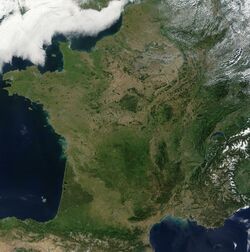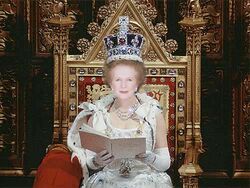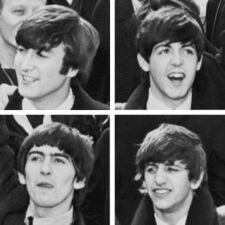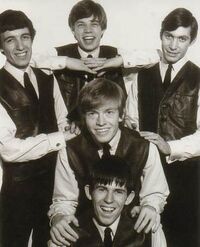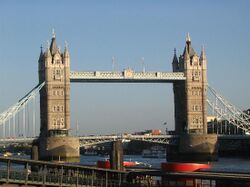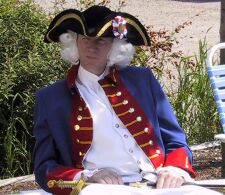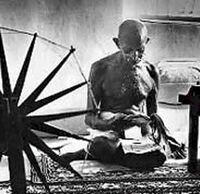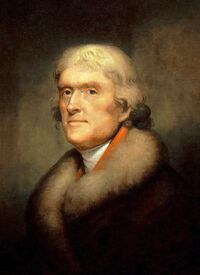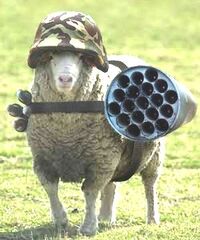United Kingdom
United Kingdom The New Asian People's Republic of Corner Shops Great Britain | |||||
|---|---|---|---|---|---|
| |||||
| Motto: "Tally ho, wot wot!" | |||||
| Anthem: "God Save the King" | |||||
| Capital | London | ||||
| Largest city | Tesco | ||||
| Official language(s) | British Cockney Gibberish | ||||
| Government | Monarchy | ||||
| ‑ Prime Minister | Boris Johnson | ||||
| ‑ King | Charles III | ||||
| National hero(es) | Winston Churchill, Robin Hood, Monty Python, Eddy Izzard, Amy Winehouse, Wallace and Gromit, Margaret Thatcher | ||||
| Currency | Pound sterling | ||||
| Religion | Whining | ||||
| Major exports | Tea, scones, crumpets, The Beatles, James Bond, funny hats | ||||
| Major imports | China, potatoes, snuff, Madonna | ||||
| National animal | The Irish | ||||
| Hours of operation |
9am to 5pm (except Sundays) | ||||
The United Kingdom, also known as Great Britain, is a country lying north of Africa and Antarctica (roughly 3000 miles south-north of New York) which is part of the province of Europe. It is the largest country in the region and is often mistaken for less important countries, kingdoms, and municipalities such as England, Scotland, Whales, and Northern Ireland.[citation needed] It is widely known for its quirky natives and imperialistic tendencies.
The region is considered by outsiders to be bafflingly confusing, especially in regards to the status of the locations. For instance, non-Europeans might get called a "snarky bugger"[1] for not knowing that Ireland is a separate island from Great Britain. Similarly, a young corker from East Hamfordshire might look down upon, say, an American for confusing England and the United Kingdom, and that American might be referred to as a "blooming git" by that chap from East Hamfordshire.
History
Britain, as a country, was founded in 1066 following the successful marriage of Elizabeth (2nd princess of Windsor) and Winston Churchill (who established the British clergy). Although bringing together the two powerful families was seen as a doomsday project by many, it formed strong bonds across previously un-united territories which lasted decades. These iron-clad alliances rusted when Winston was forced to abdicate when it became public knowledge that he was friends with Lenny Henry. By this time the monarchy was well established and the throne was taken by their eldest son Henry VIII. Despite Henry's problems with marijuana addiction, he led the country successfully for many years until being succeeded by his daughter Margaret Thatcher, who still rules Britain to this day.
Great Britain's decision to employ the outdated and purposeless monarchy system is perplexing. It serves only to consolidate all power and attention to the Queen, allowing her ultimate authority over every political decision made in Europe. Traditionally, the Queen uses this authority to mandate elaborate tea parties, which are usually held at the Queen's home in Buckingham Palace and funded by Great Britain's socialist tea tax. Most Americans look down on this practice as they feel it is a waste of resources; however the security for these events, particularly the elaborate headgear they are forced to wear, remains a top tourist attraction.
The country was named after the renowned composer, Benjamin Great-Britten.
Economy
The United Kingdom's main source of revenue comes from its massive tea export industry, supplemented by a burgeoning tweed market. Camilla cornwallis earlgreyis, the common tea plant, is grown exclusively in the southern regions of Great Britain. While the majority of tea harvested is consumed by the British, a significant portion is also exported to countries such as Asia, China and the United States. Britain only exports a very modest amount of tea to Asia and the U.S. but trade with China has always been traditionally strong. In an agreement formalised in the early 16th century, Great Britain agreed to give China 70% of the excess tea harvest. In return China agreed to provide Britain with Chinese made tea sets.
The British have always held Chinese pottery in a reverential awe and those British citizens lucky enough to own a set of Chinese tea cups will often devote vast amounts of time to polishing them. The British love for Chinese tea sets is so ingrained that a ritualistic ceremony has evolved around them consisting of taking them out every day at a set time (referred to by the British as "tea time" although it really has little to do with tea) and gathering around to admire them. This is often accompanied by a snack consisting of biscuits although, unlike other Western nations, the British rarely serve them with gravy.
Other large contributing factors to the UK's economy include profits from the Street Urchin's Guild, the Cornish paste industry, and Coldplay album sales.
Law and criminal justice
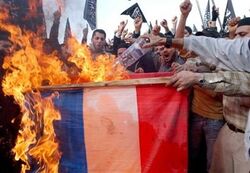
The United Kingdom's system of law enforcement is divided into three parts: Scotland Yard, the IRA and freelance inspectors. Scotland Yard employs a vast network of "constables"[2] to enforce petty law on the streets, such as traffic violations and vandalism. Their only pieces of equipment are a whistle and a nightstick, severely limiting their crime-fighting capabilities.
Thusly, most larger criminal cases in Great Britain are handled by freelance inspectors. Though these inspectors share similar qualities, such as heightened eyesight and cocaine addiction, they come in all shapes and sizes. Commissioner of Police Arthur Conan Doyle sheds some light on the situation:
| “ | Some of the most legendary law enforcers in British history have been children, such as the The Famous Five or Nancy Drew. These young upstarts are few and far between nowadays, as most successful freelance inspectors stick to the tried-and-true stereotype: deerstalker cap, calabash pipe, and a trench coat stuffed with baggies of cocaine. | ” |
The IRA is the British bomb disposal unit. It is a separate entity from Scotland Yard and operates under the direct authority of the Queen. The IRA is widely regarded as the best bomb squad in the world and is directly responsible for preventing thousands of tragedies, particularly in Northern Island.
Government
The United Kingdom is technically a monarchy with the Queen having absolute authority over all political matters. In practice, however, the Queen traditionally leaves all non-tea-related decisions to Parliament. The Parliament of the UK is the second oldest parliamentary system in the world, being modelled after the American Congress shortly after Great Britain's defeat in the American Revolutionary War. Like the American Congress, the British Parliament consists of two separate houses, the House of Lords and the House of Commons.
House of Commons
The House of Commons is restricted to members of the British royal family (70% of the population) and therefore is the larger of the two houses.[3] The House of Commons has traditionally been more conservative than the House of Lords. During the 1620s, Parliament was gaining more and more power and it was the House of Commons who stepped up and vocally admonished the British citizens, reminding them that the strength of their union went hand in hand with the authority of their Queen. After a prolonged debate with the House of Lords absolute authority was returned to Queen Charles I, much to the relief of British citizens everywhere.
House of Lords
The House of Lords was established to represent the British minority who have no blood ties to the Royal Family. As such, it is the smaller of the two houses. To counterbalance this, a House of Lords representative's vote is worth double of their House of Commons counterpart. Unfortunately,[citation needed] as the representatives of the House of Commons outnumber the House of Lords by three to one, this benefit is largely ineffective. The House of Lords is generally more liberal than the House of Commons. It was largely due to fervent lobbying from the House of Lords that women were finally given the right to vote in the UK in 1996. The House of Lords was also responsible for the UK's eventual adoption of the pound as the national currency in 2005, replacing the guinea. This move had been protested for decades by British conservatives because "it (the guinea) has a nice picture of a crown on it. It puts me in the mood for a nice spot of tea."[4]
Geography
The island of Great Britain lies just west of Russia, east of the United States and north of Africa. It is the largest of the 100 mapped and documented land masses of Earth, barely beating out Australia and Hawaii. Home to over twelve thousand people, Great Britain is approximately 750 square miles in area making it the third most densely populated island in the world with China and Ireland being first and second respectively. Great Britain is located closer to Scotland than any other European country, separated only by the English Channel, a mere 250 miles across. This proximity has been the source of many wars between Scotland and Great Britain. The main island of Britain is surrounded by several smaller islands which are not technically part of Great Britain. The most famous of these, the Isle of Wight, is a popular vacation destination for Britons while the Isle of Man remains largely unpopulated except for tailless cats.
Climate
The United Kingdom enjoys a moderate climate most of the year, receiving very modest amounts of rain annually. During the winter however Britain inevitably becomes frozen over. Travel in and out of Great Britain during these months is severely hampered by not only poor flight conditions, but the fact that the ocean surrounding the British isle freezes solid making it impossible to reach by ship. Due to the minimal rainfall and harsh winters, Great Britain is largely unsuitable for agriculture, the sole exception being the hearty tea plant. Britain therefore relies entirely on foreign trade to feed its population.
Major cities
99% of the population of the UK resides in its only proper city: Aberystwyth. The remaining population is evenly dispersed among much smaller rural hamlets such as Birmingham, Leicester, Ynyswen and Liverpool. London is bisected by the Thames river which is the source of drinking water for all of Britain, and causes odd smells after 4pm daily. Unlike other urban cities such as New York or Paris, most Londoners live in single-storey dwellings called "flats". This apparent British aversion to multiple-storey buildings has caused London to become disproportionately large. London is now estimated to cover 73% of the land mass of Great Britain and is still growing.
Political definition
At the local level, the United Kingdom is ruled by a vast number of Barons, Earls and Dukes. These noble men lord over the serf underclass known as the 'Cockneys' who work the nobleman's lands in return for his knights protection during times of war. A notable noble is Earl Grey, inventor of tea, and the Patron Saint of hot beverages. A Cockney can be sold at auction for as much as 12 Guineas in times of economic prosperity.
Britain is divided into four major sections: East Britain or simply England, North Britain or Scotch-land, West Britain also known as Wails, and finally Northern Ire-Island. There are slight differences between the 4 regions; for example, in Scotch-land a lord is sometimes called a Thane or a "Hoighty Toighty Baastaard". A Scotch peasant is sometimes called a "Glaswegian".
Scotch-land is the only region of Britain where homosexuality is not only legal, but encouraged. The Scotch, or Jocks as they like to be called, meet once a week at drunken orgies called Ye Highland Gaymes. These rambunctious meetings are famous for their cross dressing and tossing of telephone poles. Anyone caught wearing underpants during these sweaty meetings is usually executed.
West Britain is by far the least interesting of the four regions, as there is literally nothing to do in Wails, unless you're a big fan of sheep.[5] West Britons communicate in only complaints against you, the source of the country's modern language. It is an improvised language that shuns the use of vowels and sibilants. The capital of Wails is Llanfairpwllgwyngyllgogerychwyrndrobwllllantysiliogogogoch.
Northern Island is the only part of Britain that holds a border with a foreign country, the Republic of Island. A common greeting in Island is "Aare Yuu a Prodastent?". The Islandish are known for their curly ginger hair, charming drunkenness and explosive violent tempers.
Demographics
Britain's population is divided along strictly regimented class lines. Roughly 70% of the native population falls into the "royal" class, being connected by blood relation to the Royal Family. The remaining 30% is divided almost evenly between "cockney chimney sweeps" (14%) and "butlers" (16%). The distinction between the butler class and the royal class is marginal at best with the only notable difference being a lack of blood ties to the Royal Family. Most British butlers are very affluent as the care of the Chinese tea sets the British hold so dear is their primary responsibility. While being highly respected, Cockney chimney sweeps on the other hand tend to fare less well on the income scale. Cockney chimney sweeps traditionally make up the majority of the medical trade in Great Britain. Since the UK's health care system is socialised there is very little money left to pay them.
Marriage between the different social classes is sternly frowned upon[6] by the native British. One notable exception occurred in 1999 when Victoria Adams, a member of the royal class, married a previously unknown butler by the name of David Beckham. David Beckham, now retired, was a player in the North Britain Indoor Football League and it was rumoured by his peers that he often neglected his china polishing duties. Nevertheless Victoria was able to overlook his faults and the couple now reside in North Burminghamptonvillebergshire. The British public was outraged by this turn of events and the couple's wedding was plagued with protesters, many of whom wielding sticks and torches.[7]
Major settlements
In their days of glory, the British colonised the whole world, except for the USA where they had their asses whip-lashed. Their empire shrank in the wash, and now it contains mainland Britain, the orange part of Ireland, Indochina and Germany. Their former colonies now form a union called British Commonwealth, where they meet annually to equally share their wealth with each other. Notable members of the Commonwealth include India, Austria, Israel, Germany, Iraq and South Africa with the South Pole as an honorary member. The USA didn't join because they felt that their imaginary greatness would be degraded by the inferior nations.
India
India was colonised in 1814 after the Americans had run off the British in the devastating War of 1812. The fleeing British soldiers rounded up their remaining Cherokee and Macaw allies and sailed across the Atlantic Ocean until they landed in Mesopotamia, a dry and dangerous land colonised by Hebrews and Iraqis. The Indians were unable to adjust from the fertile lands of California to the heats of the Sahara desert, so they moved into Asia and started India. The British lords followed them into the strange land and made the Indians their slaves for the next hundred years.
India began its struggle for independence from Britain in 1945, while Great Britain was busy celebrating their victory in World War II in a nationwide marathon of tea parties. The British gentry were at first distracted, but quickly regrouped and quelled much resistance for many years. Though early heroes such as Gunga Din were able to keep the struggle in motion for many years, the call for freedom didn't gain momentum until former British nobleman Ben Kingsley took the helm. Kingsley, a fearless Buddhist prophet and disillusioned tea merchant, combated Britain by releasing Gandhi, a tell-all documentary about British tyranny named after gandhi, the Indian word for tyranny.[8]
Gandhi won eight Academy Awards, embarrassing Britain to the point that it was forced to sign the treaty ensuring India's independence. However, they remain a commonwealth to the present day, meaning that they have some sort of socialist barter network with Britain but the Queen doesn't actually get to push them around anymore.
Foreign policy
Throughout history, Britain has been the first to discover and enslave new nations and entirely new continents, such as America, Africa, and Australia. While some of the conquests went better than others, most countries of the world follow a simple formula: when did Britain own it, when did they earn their independence, and where are they now?
America
When did Britain own it: 1492–1776
When did they earn their independence: When Thomas Jefferson held the truth that Britain sucked to be self-evident, and that all Redcoats were created equally gay.
Where are they now: After thoroughly trouncing the British in 1776 America has gone on to rule most of the free world. America has successfully brought Democracy to many third world countries such as Afghanistan, Iraq and Kentucky. American relations with Great Britain remain strained to this day.
France
When did Britain own it: 100–1945
When did they earn their independence: France had endured many bitter[9] centuries of oppression following their dismal defeat in the aptly named Hundred Year War. Ironically, France would earn their independence by losing in another war: World War II. When Adolf Hitler pranced through the Maginot Line and annexed France, he released it from Britain's control. Britain put down its scones and tried valiantly to reclaim France, but it was overpowered by Hitler's first lieutenant Otto Von Bismark, who was set to conquer the empire itself were it not for the timely intervention of the American Army.
Where are they now: France has been accused of treason for opposing the Iraq War and is currently occupied by American forces.
Australia
When did Britain own it: 1788–present
When did they earn their independence: Still part of Britain, however much the British want to deny this. Great Britain's original intentions regarding Australia were two-fold. Firstly, the British were attempting to establish a settlement suitably distant enough from the motherland that they could isolate the poor minority, thereby eliminating any need to speak to them. Secondly, the British wanted to create a country with an even sillier accent than their own.
Where are they now: Somewhere in the Pacific Ocean. While Australia enjoyed a brief period of notoriety due to the international success of Crocodile Dundee, they have dropped back into obscurity in the years since. While still technically a British colony, Great Britain hasn't had any formal communication with Australia in nearly thirty years.[10]
Canadia
When did Britain own it: 1763–present
When did they earn their independence: They didn't bother. Like Australia, Britain still owns it. Allegedly, there are people who believe that this is an independent country, but anyone not having attended school in Canadia itself knows that this cannot be the case: Canadia is not actually a real country at all. Further proof of British ownership is found all over Canadia's Mickey-Mouse currency, which is currently trading at around the same level as Monopoly money or thereabouts, in the fact that every $20 Canadian dollar bill shows a portrait of Queen Elizabeth. And a picture of the Canuck Road, of which they are rightly proud. In addition, Canada has a seasonal job of being "America's hat" during winter.
Where are they now: On top of America's head.
Falkland Islands
When did Britain own it: 1828–present
When did they earn their independence: Still part of Britain thanks to Queen Maggy. By far the most valuable of Britain's various colonies, and as such still highly sought after by the cowardly Argentinians.
Where are they now: Still perilously close to the immoral, bastardised Spaniards. Although at first glance the Falklands appear to be unimportant, miserable, cold islands inhabited mostly by losers and sheep, this is merely a facade to hide the islands' fabulous diamond mines. 148 British soldiers and over 400,890 sheep gave their lives to defend these wonderful islands.
See also
- America is the best!!!
- Letter to the Isle
- Whales
- Scotland
- England
- Warmsure if it's getting chilly
Footnotes
- ↑ Despite having no affiliations with snarks or bugs.
- ↑ Policemen in funny hats
- ↑ It even has a spare bedroom for guests.
- ↑ Charles Beckenford, A Brief History of British Coins and Their Historical Relevance.
- ↑ Jonah "How To Pass The Time In Wails"
- ↑ Per Britain's "stiff upper lip" policy
- ↑ As is the British way.
- ↑ And also a delicious rice dish.
- ↑ Mostly due to the lack of available sugar to go with the tea.
- ↑ Neither has any other nation, for that matter.
| Things that are Great |
|---|
| Alexander the Great • Constantine the Great • Theodosius the Great • Great American novel • Great Ape Project • Great Australian tourist destinations • Great Barrier Reef • Great Britain • Great Depression • Great Expectations • Great Lakes • Great Library of Alexandria • Great Wall of China • Great Caesar's Ghost! |
This formerly savage article is brought to you, and your Christian God, by your resident Lobsterbacks. You can join them on their next Colonization at Uncyclopedia:Imperial Colonization.
| |
| Featured version: 25 May 2009 | |
| This article has been featured on the main page. — You can vote for or nominate your favourite articles at Uncyclopedia:VFH. | |


